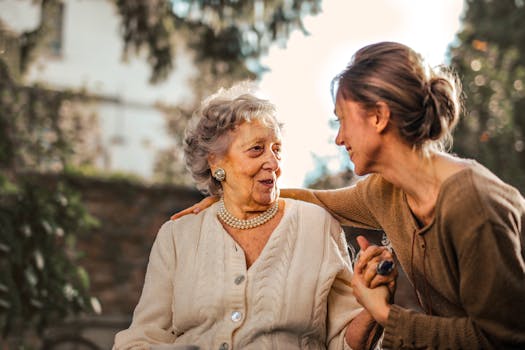happpy.news is an open source project, made with ♥ by reuben armstrong
and powered by this advert ^ from charity.marketing
Japan is leading the world in the use of AI and robotics for elderly care. Innovation in this area is crucial as the country faces an ageing population and a shortage of care workers. Robots are being used to help with tasks such as lifting and bathing.

Japan is at the forefront of integrating artificial intelligence (AI) and robotics into elderly care, a vital development given the country’s rapidly aging population. With one of the highest life expectancies in the world, Japan is facing a dual challenge: an increasing number of elderly individuals and a significant shortage of caregivers. According to the World Bank, by 2050, more than a third of Japan’s population will be over 65. This demographic shift necessitates innovative solutions, and Japan is rising to the occasion.
AI-driven robots are being designed to assist with various tasks that are critical to the daily lives of senior citizens. These include helping with lifting, bathing, and even engaging in social interactions. For example, the Robi and Paro robots are not just machines; they are companions that provide emotional support and stimulate cognitive functions. Such innovations are essential in promoting not just physical well-being but also mental health among the elderly.
One of the most notable advancements is the development of exoskeletons that aid caregivers in lifting and moving elderly patients. These wearables significantly reduce the physical strain on human caregivers, allowing them to perform their jobs more efficiently while minimizing the risk of injury. This is particularly important in a country where many caregivers are also aging, and the physical demands of the job can be challenging.
Moreover, robotic companions equipped with AI are capable of learning from their interactions. They can recognize patterns in behavior and preferences, allowing them to provide personalized care. These robots can remind seniors to take their medications, assist with mobility, and even engage in conversation, which can combat feelings of loneliness and isolation. The National Institute of Advanced Industrial Science and Technology in Japan is pioneering research in this area, showcasing the potential of technology to enhance the quality of life for the elderly.
Collaboration between technology firms and healthcare providers is crucial in this endeavor. Companies like SoftBank Robotics are leading the way with their Pepper robot, which can interact with users and assist in a variety of care scenarios. Such partnerships facilitate the development of robots that are not only effective but also affordable and scalable, making them accessible to a wider array of facilities, from nursing homes to individual households.
However, the integration of robots into elderly care is not without its challenges. Concerns about the acceptance of robots by seniors and their families persist. Many elderly individuals may feel apprehensive about relying on technology instead of human interaction. To address this, providers emphasize the role of robots as enhancers rather than replacements for human care, assuring families that the emotional connection between caregivers and seniors remains paramount.
Despite these hurdles, the outlook is promising. Japan’s commitment to leveraging technology for social good reflects a broader trend of innovation aimed at addressing pressing societal issues. As the country continues to invest in AI and robotics, the potential for improving the lives of its elderly population is immense.
In conclusion, Japan's pioneering efforts in AI-driven robots for elderly care are setting a benchmark for the global community. By embracing technology to meet the needs of its aging population, Japan is not only enhancing the quality of life for seniors but also creating a model that other nations can learn from. With continued innovation and collaboration, the future of elderly care looks bright, promising a more dignified and fulfilling life for the elderly.
Source: Reuters